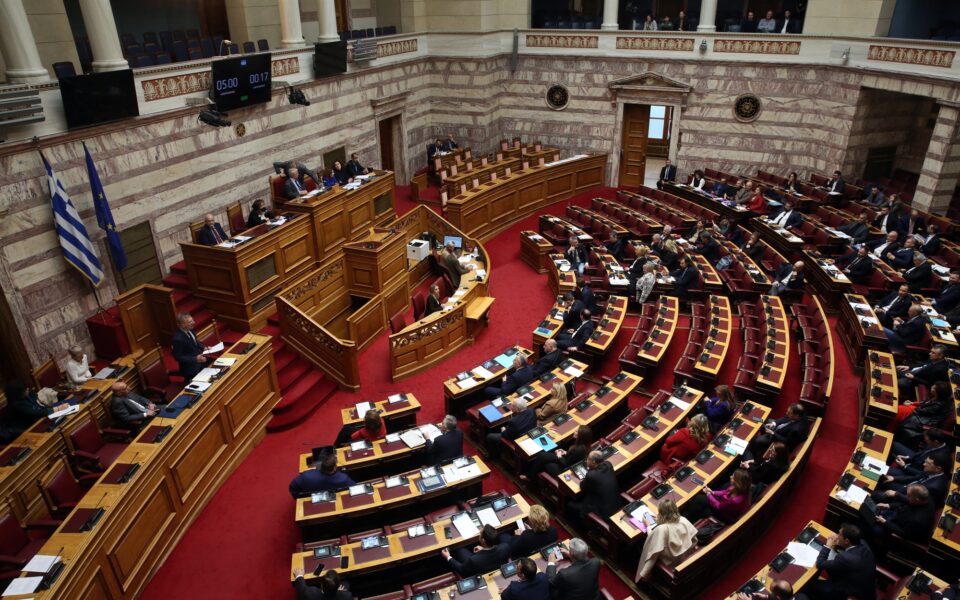Political dialogue requires respect for the opposing point of view

Twenty years ago, during my mandate as European commissioner for employment, social affairs and equal opportunities, the European Council adopted a directive to eliminate discrimination based on nationality, religion, sexual orientation and disability in employment and the economy.
I had proposed this directive to the European Commission and the European Parliament, and after long consultations in all countries and adoption by the Council, it became an EU directive. Today it is national legislation in all EU countries and accepted by their societies.
The consultation and political dialogue in each country had different characteristics and was very intense.
I remember the Irish labor minister coming in and out of the room and asking for breaks in the meeting because he was negotiating with six churches.
His main issue was whether gay men or women could be teachers, especially in church schools… They could!
The experience of those years has led me to follow the global debate for 20 years now, observing the serious arguments personally, morally, legally and of course politically; arguments that on the one hand convince us of the need for institutional changes, but on the other lead to extreme approaches that cause social and political conflicts, such as in the US.
After much internal and serious research, I agree with same-sex marriage and the adoption rights that stem from it.
My journey from being a country girl brought up in a patriarchal family to being a member of Parliament, in direct contact with the citizens, their problems and their opinions, as well as European politics, the osmosis of social and institutional issues, has always made me search in depth and “troubleshoot” the formation of final opinions.
I hope that the deliberation on the expected bill and the concessions on the demands will allow a consensus without major social rejections.
But we must be aware that the next steps will be difficult to avoid in the long run.
An important aspect of political dialogue, which, as always, but especially in these cases, takes on dogmatic characteristics, is respect for the opposing point of view.
The issue concerns very few people, but it is of great concern to society as a whole, not from a legal perspective, of course. Greek society and the majority of our political system are now clear that they do not operate with extreme or obscurantist views. For centuries, different sexual orientation that did not conform to social norms was a cause of discrimination, contempt or even death.
Today, in our country, this diversity is not a reason for contempt, and of course it is not a reason for pride, it is the right of every person to define their personal life, to express themselves freely without any discrimination.
In our country, it is the right of every person to define their personal life, to express themselves freely without discrimination
Public opinion polls and the opinion of the majority of parliamentarians show an impressive acceptance of this free expression of the individual.
In this reality, it is advisable not to operate with dogmas on the issue of marriage and adoption for same-sex couples:
It is a human rights issue – period.
It is a matter of protecting children – period.
It will tear at the core of our society – period.
Progressives support it – period.
Conservatives are obscurantists – period.
There is nothing paradoxical about the participants in the debate feeling that they have the absolute truth. There have been conflicts over social issues such as the recognition of illegitimate children (the old label of “bastard”), civil marriage, or adultery that have been smoothed over in an osmosis of social perceptions and political decisions. Same-sex marriage and adoption is not just a matter of human rights, nor is it just a matter of child protection.
These issues can be addressed with the legal tools available to the organized state. It is a question of accepting the current change in the family model, which has been going on for centuries (not in the same way in different religions and societies), and it must be understood that it is extremely difficult for everyone to agree.
I personally confess that I have confirmed the need for this change through experience, through my contact with same-sex couples with children, when I have been able to easily experience and perceive the characteristics of a marital and parental relationship not so different from the one we know.
I believe that a prerequisite for institutional change is the absolute freedom of expression of everyone’s political views, without implicit threats of consequences or implicit offers of rewards for good behavior.
The change to the family model which is de facto institutionally promoted must not be done by blackmail or barter. In the long run, it should be possible for each of us to get out of our own way and live with the assumption that there can be no invisible or relatively visible people, nor invisible or relatively visible relationships.
Anna Diamantopoulou is president of the DIKTIO Network for Reform in Greece and Europe. She is a former minister in the Greek Parliament and a former EU commissioner.





